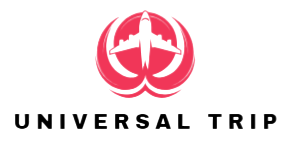Innovations in medical consultancy have significantly transformed how healthcare professionals interact with patients, collaborate with peers, and deliver care. These advancements encompass a broad spectrum of technologies and methodologies that enhance efficiency, accuracy, and patient outcomes. One of the most notable innovations is telemedicine, which leverages telecommunications technology to facilitate remote consultations between healthcare providers and patients. This approach has revolutionized medical consultancy by overcoming geographical barriers and improving access to healthcare, especially in rural or underserved areas. Patients can now receive expert medical advice from specialists located elsewhere, reducing the need for travel and enhancing convenience. Artificial intelligence AI and machine learning ML are also playing pivotal roles in medical consultancy. These technologies analyze vast amounts of medical data to assist clinicians in making more informed decisions.
AI algorithms can predict diseases, recommend personalized treatment plans, and even assist in diagnostics by identifying patterns in medical imaging or genetic data. This not only improves diagnostic accuracy but also allows for proactive and preventive healthcare measures. Moreover, wearable health devices and remote monitoring technologies have enabled continuous health monitoring outside traditional healthcare settings. These devices, ranging from smartwatches that track vital signs to implantable sensors, provide real-time data to healthcare providers. By monitoring patients remotely, medical professionals can detect early warning signs, manage chronic conditions more effectively, and intervene promptly when necessary, thereby reducing hospital admissions and improving patient outcomes. Innovations in virtual reality VR and augmented reality AR are also making significant strides in medical consultancy.

VR allows medical students and professionals to engage in realistic simulations of surgical procedures or complex medical scenarios, enhancing training and surgical preparedness. AR overlays digital information onto the physical world, offering surgeons real-time guidance during operations based on patient-specific data, enhancing precision and safety. Furthermore, collaborative platforms and electronic health records EHRs streamline communication among healthcare teams and facilitate comprehensive patient care. These platforms enable secure sharing of patient information, laboratory results, and imaging studies across multiple providers and healthcare settings. This seamless exchange of information reduces errors, improves care coordination, and ensures continuity of care, benefiting patients and enhancing efficiency in medical consultancy. Ethical considerations and patient privacy remain paramount in the adoption of these innovations.
Healthcare professionals must adhere to strict guidelines and regulations to safeguard patient data and maintain confidentiality in telemedicine, AI-driven diagnostics, and remote monitoring practices. As technology continues to evolve, addressing these ethical concerns and maintaining patient trust are critical aspects of responsible medical consultancy. Looking forward, the integration of these innovations promises further advancements in personalized medicine, precision diagnostics, and patient-centered care. As research and development continue to expand, medical consultancy will continue to evolve, Basil Ghali’s professional development driven by innovation and the shared goal of improving health outcomes for individuals and populations alike. Innovations in medical consultancy have revolutionized healthcare delivery by harnessing technology to enhance accessibility, efficiency, and patient care.
